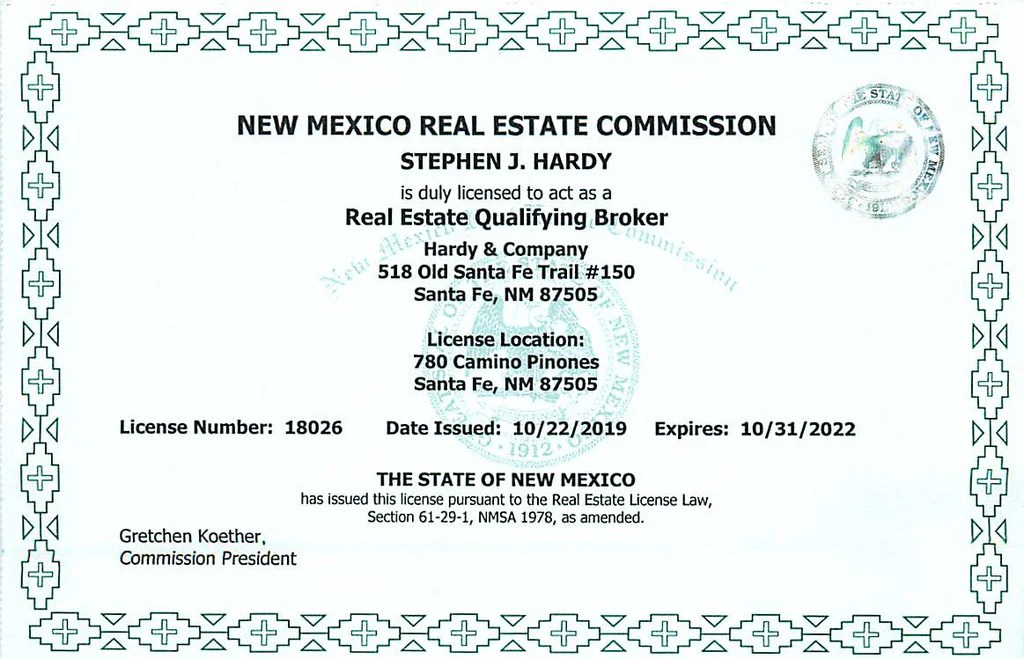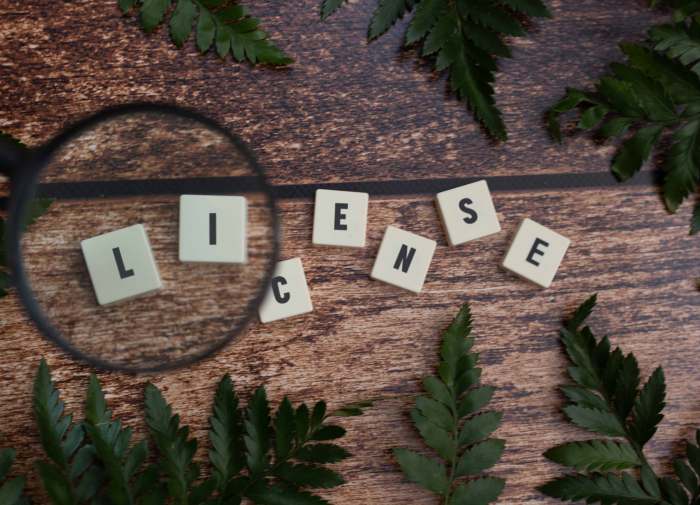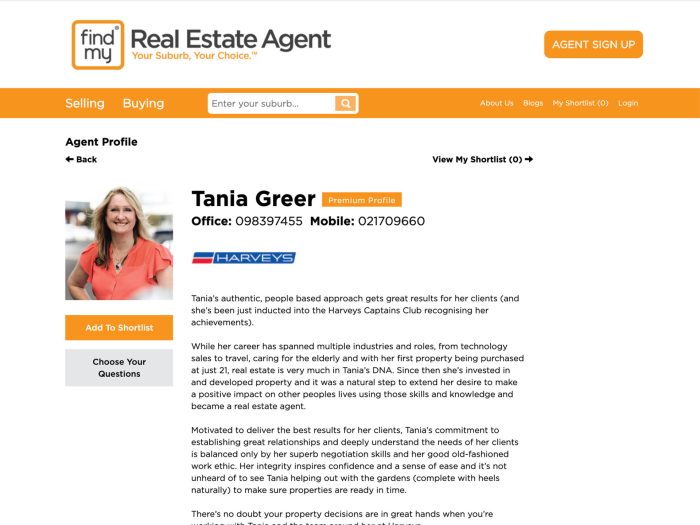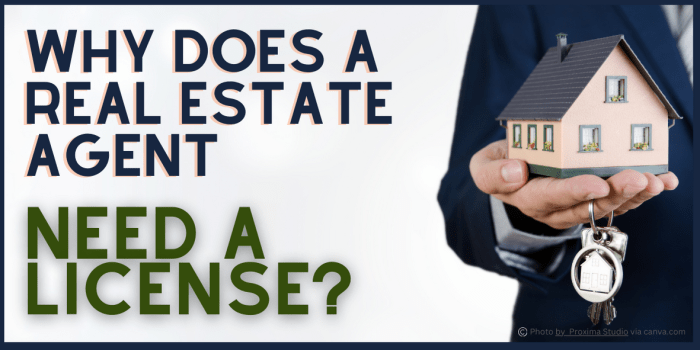How to check if a real estate agent is licensed? It’s a crucial question for anyone buying or selling a home. Protecting yourself from fraud starts with verifying that your agent is legally authorized to operate. This guide will walk you through the steps to confirm your agent’s license, highlighting key resources and red flags to watch out for.
We’ll cover everything from finding your state’s licensing board to understanding what license statuses mean and how to report suspected fraud.
Buying or selling a home is a significant financial decision. Ensuring your agent is legitimate is a critical part of the process, safeguarding your interests and ensuring a smooth transaction. By learning how to easily verify a real estate license, you take control of your investment and minimize potential risks.
State Licensing Boards: How To Check If A Real Estate Agent Is Licensed

Source: shopify.com
Finding out if a real estate agent is licensed is crucial for protecting yourself. The most reliable way to do this is by checking with your state’s real estate licensing board. These boards maintain databases of licensed agents and their status, allowing you to quickly verify their credentials.
State Licensing Board Websites and Information
Locating the correct website for your state’s real estate licensing board is the first step. The following table provides links to many state licensing boards. Note that this is not an exhaustive list, and some states may have slightly different names for their regulatory bodies. Always double-check the official government website for your state for the most up-to-date information.
| State | Website URL | Contact Information (Example – Check individual sites) | Licensing Board Name (Example – Check individual sites) |
|---|---|---|---|
| Alabama | (Example: www.arec.alabama.gov) | (Example: Phone Number, Email Address, Mailing Address) | (Example: Alabama Real Estate Commission) |
| Alaska | (Example: www.commerce.alaska.gov/web/realestate) | (Example: Phone Number, Email Address, Mailing Address) | (Example: Alaska Department of Commerce, Community, and Economic Development) |
| Arizona | (Example: www.azre.gov) | (Example: Phone Number, Email Address, Mailing Address) | (Example: Arizona Department of Real Estate) |
| Arkansas | (Example: www.arec.arkansas.gov) | (Example: Phone Number, Email Address, Mailing Address) | (Example: Arkansas Real Estate Commission) |
Typically, a state real estate licensing board website will contain information such as a searchable database of licensed agents, details on licensing requirements, disciplinary actions taken against agents, and contact information for the board. You might also find FAQs, forms for complaints, and educational resources.
Searching for a Specific Agent’s License Status
Once you’ve located the correct state’s licensing board website, you’ll usually find a search function, often prominently displayed on the homepage. This search tool generally allows you to search by the agent’s name, license number, or sometimes even their business address.The search interface will typically include a text field for entering the search criteria and a “Search” or “Go” button.
After submitting your search, the results page might display a list of matching agents. Each listing usually shows the agent’s name, license number, license status (active, inactive, suspended, revoked), and possibly their business address and contact information. Sometimes, a detailed profile page will be available for each agent, providing even more information. For example, imagine a search result page. The top of the page might display a heading like “Search Results for John Doe”. Below this, a table might list multiple agents matching the search criteria. Each row would represent a different agent, with columns showing their name, license number, license status (e.g., “Active,” “Inactive,” or “Revoked”), and potentially other details like their business address and contact information. There might be a link to view a detailed profile for each agent, providing further information. The interface is typically straightforward and intuitive, designed for easy navigation.
Agent Identification Methods

Source: website-files.com
Identifying a real estate agent’s license status requires more than just a name. While a name might be a starting point, it’s crucial to use additional information to verify their license and ensure you’re working with a legitimate professional. This helps protect you from potential scams and ensures a smooth, legal real estate transaction.Several pieces of information are typically used to identify a real estate agent.
Using a combination of these methods provides a much more reliable way to confirm their licensing.
Identifying Information for Real Estate Agents
To verify a real estate agent’s license, you’ll typically need a combination of identifying details. These usually include the agent’s full name, their license number, and potentially their brokerage affiliation. Sometimes, a contact address or email address might also be available through public records. The specific information available and the methods for accessing it will vary depending on your state and the licensing board’s online resources.
Challenges of Using Only the Agent’s Name
Relying solely on an agent’s name to verify their license presents significant challenges. Many people share the same name, and searching by name alone could yield numerous results, making it difficult to pinpoint the correct individual. This ambiguity increases the risk of interacting with an unlicensed or fraudulent individual. For instance, searching for “John Smith” in a statewide real estate agent database would likely return hundreds of results, making verification almost impossible without additional identifying details.
Importance of Multiple Identifying Factors
Using multiple pieces of information significantly improves the accuracy of license verification. Combining the agent’s full name with their license number provides a much more precise search. This minimizes the chance of error and helps to definitively confirm the agent’s license status. Consider this: even if you find a “John Smith” with a real estate license, you can’t be certain it’s theright* John Smith without further verification like a license number.
Therefore, using multiple data points like name, license number, and brokerage dramatically reduces the chances of making a mistake.
Verifying License Information

Source: waterwoodestate.com
So you’ve found a real estate agent and want to make sure they’re legit? Great! Checking their license is a crucial step in protecting yourself and your investment. This section will walk you through how to verify a real estate agent’s license status using their state’s licensing board website.
Step-by-Step License Verification
Verifying a real estate agent’s license is straightforward once you know where to look. Each state maintains its own licensing board, and their websites usually offer a simple license lookup tool. Follow these steps for a successful verification:
- Locate the State’s Real Estate Licensing Board Website: A quick Google search for “[State Name] Real Estate Commission” or “[State Name] Department of Real Estate” will usually get you there.
- Find the License Verification Tool: Most websites have a prominent link or search bar labeled “License Search,” “Verify License,” or something similar. Look for it on the homepage or in a section marked “Consumers,” “Public,” or “Licensing.”
- Enter the Agent’s Information: You’ll typically need either the agent’s name or license number. Sometimes both are required. Be sure to type the information accurately, as slight errors can prevent finding the correct record.
- Review the Results: The website will display the agent’s license information, including their name, license number, license status (active, inactive, revoked, etc.), and often their business address and contact information. Take a moment to compare the details to the information you have about the agent.
- Check the License Expiration Date: Make sure the license is currently active and hasn’t expired. An expired license indicates the agent may not be legally allowed to practice real estate in that state.
License Status Interpretation
Understanding what the different license statuses mean is vital. Here’s a breakdown of common statuses you might encounter:
| License Status | Meaning |
|---|---|
| Active | The agent’s license is current and in good standing. They are legally authorized to practice real estate. |
| Inactive | The agent’s license is not currently active, possibly due to temporary suspension or voluntary inactivity. This doesn’t necessarily mean wrongdoing, but you should inquire further. |
| Revoked | The agent’s license has been permanently taken away, usually due to serious violations of real estate laws or ethical breaches. This is a serious red flag. |
| Suspended | The agent’s license has been temporarily suspended, often due to pending investigations or disciplinary actions. Similar to inactive, this warrants further investigation. |
Flowchart for License Verification
Imagine a flowchart with these boxes and arrows:[Start] –> [Find State Licensing Board Website] –> [Locate License Verification Tool] –> [Enter Agent’s Name/License Number] –> [Review Results (License Status, Expiration Date, etc.)] –> [Is License Active and Unexpired?] –> [Yes: Proceed with Confidence] –> [No: Exercise Caution/Further Investigation] –> [End]
Red Flags and Warning Signs

Source: americanaproperty.com
Spotting a potentially unlicensed or fraudulent real estate agent requires awareness of certain red flags. These warning signs can help you protect yourself from scams and ensure a smooth, legal real estate transaction. While not every red flag guarantees illegal activity, their presence warrants further investigation before proceeding.It’s crucial to understand that unlicensed agents operate outside the regulatory framework designed to protect consumers.
This lack of oversight increases the risk of unethical practices and financial losses. Therefore, paying close attention to the details during your search for an agent is paramount.
Examples of Unlicensed or Fraudulent Agent Activities
Unlicensed agents often employ deceptive tactics to lure unsuspecting clients. These tactics can range from subtle omissions to outright falsehoods. Being aware of these common scenarios can help you avoid becoming a victim.
- An agent consistently avoids discussing their license or refuses to provide licensing information when asked.
- They pressure you to make quick decisions, bypassing standard procedures like property inspections or legal reviews.
- The agent operates solely through informal channels like social media or word-of-mouth, without a professional website or established office.
- They offer unrealistically low fees or unusually high returns on investment, promising quick profits with minimal risk.
- The agent uses high-pressure sales tactics, focusing on emotional appeals rather than factual information about the property.
- They claim to have exclusive access to properties or deals not available to the general public.
- Significant inconsistencies are present in their story or the details they provide about their experience or qualifications.
Consequences of Working with an Unlicensed Agent vs. a Licensed Agent
The differences in consequences between working with a licensed versus an unlicensed agent are substantial. Choosing a licensed professional provides critical protections not afforded when dealing with an unlicensed individual.
| Licensed Agent | Unlicensed Agent |
|---|---|
| Consumer protections provided by state regulatory bodies. If problems arise, you have recourse through formal complaint processes and potential legal remedies. | Limited or no consumer protection. Resolving disputes becomes significantly more challenging and potentially costly. You may have little recourse if things go wrong. |
| Access to professional standards and ethical guidelines, ensuring a higher degree of professionalism and accountability. | No adherence to professional standards or ethical guidelines, increasing the risk of unethical practices and fraud. |
| Greater access to resources and expertise, resulting in a smoother and more efficient transaction process. | Potentially higher risk of errors, omissions, and fraudulent practices, leading to delays, financial losses, and legal complications. |
| Increased likelihood of a successful and legally sound real estate transaction. | Higher risk of a failed transaction, financial losses, and legal entanglement. |
Additional Resources

Source: thepreferredrealty.com
Finding a real estate agent you can trust is crucial, and verifying their license is a key step in that process. While the state licensing board is your primary resource, utilizing additional tools can provide a more comprehensive picture of an agent’s background and history. This extra layer of verification helps protect you from potential scams or unethical practices.Beyond checking with your state’s licensing board, several other resources can help you confirm an agent’s credentials and ensure they are operating legally.
Using multiple resources provides a stronger level of verification and allows you to cross-reference information to ensure accuracy and consistency. Discrepancies between sources should raise immediate concerns.
Multiple Resource Verification Benefits, How to check if a real estate agent is licensed
Utilizing multiple resources to verify a real estate agent’s license offers significant advantages. Cross-referencing information from different sources helps confirm the accuracy of the licensing details and reveals potential inconsistencies or red flags that might be missed when relying on a single source. This multi-faceted approach provides a more thorough due diligence process, significantly reducing the risk of engaging with an unlicensed or potentially problematic agent.
For example, if the agent’s name and license number match across the state board’s website and a third-party verification service, it provides greater confidence in their legitimacy. Conversely, discrepancies should trigger further investigation.
Reporting Suspected Unlicensed Activity
Reporting suspected unlicensed real estate activity is vital for protecting consumers and maintaining the integrity of the real estate industry. Unlicensed agents often operate without the oversight and regulations that protect consumers from fraud and unethical practices. Failing to report such activity allows these individuals to continue their operations, potentially harming more people. Your report helps authorities investigate and take appropriate action against those operating illegally.
Contact information for reporting suspected unlicensed activity is typically available on your state’s real estate licensing board website.
List of Additional Resources
Many resources are available beyond the state licensing board. Here are a few examples, although specific resources may vary by location:
- Better Business Bureau (BBB): Check for complaints or reviews filed against the agent or their brokerage.
- Real Estate Associations: Many local and national real estate associations maintain databases of their members, providing another way to verify an agent’s affiliation and standing within the industry.
- Online Review Platforms: Websites such as Zillow, Realtor.com, and others often include agent profiles with reviews and ratings from past clients. While not a substitute for license verification, reviews can offer insight into an agent’s professionalism and reputation.
- Third-Party Verification Services: Some companies specialize in verifying the licenses and credentials of professionals, including real estate agents. These services may offer faster or more convenient access to information than the state licensing board.
Ultimate Conclusion

Source: mainstsuccess.com
Successfully verifying a real estate agent’s license is a simple yet powerful step in protecting yourself during a real estate transaction. By utilizing the resources and methods Artikeld above, you can confidently proceed knowing you’re working with a qualified professional. Remember, taking the time to verify your agent’s credentials is an investment in the security and success of your real estate journey.
Don’t hesitate to report any suspicious activity to the appropriate authorities.